
 In light of the riots in Britain, we are publishing an article based on some correspondence from the "Trotskyist", "socialist" and "revolutionary" UK group, Workers' Liberty[1], first published in 1995 at http://www.workersliberty.org/node/4900 on 30 September, 2005. The correspondence calls into question, especially now, different attitudes on the likely consequences of high immigration and population growth in Australia and Britain among other countries mentioned. Describing himself as still a socialist internationalist at heart, James Sinnamon writes that, however, "today the ideal of unconditional internationalism is an unachievable pipe dream, and, in fact, dangerous [because] that ideal has been subverted to suit the needs of globalised capitalism."
In light of the riots in Britain, we are publishing an article based on some correspondence from the "Trotskyist", "socialist" and "revolutionary" UK group, Workers' Liberty[1], first published in 1995 at http://www.workersliberty.org/node/4900 on 30 September, 2005. The correspondence calls into question, especially now, different attitudes on the likely consequences of high immigration and population growth in Australia and Britain among other countries mentioned. Describing himself as still a socialist internationalist at heart, James Sinnamon writes that, however, "today the ideal of unconditional internationalism is an unachievable pipe dream, and, in fact, dangerous [because] that ideal has been subverted to suit the needs of globalised capitalism."

The correspondence below began as a private exchange in 2005 between James Sinnamon and Martin Thomas, and so its appearance on the Workers' Liberty site came as something of a surprise to James at the time, as he was not asked permission or told it would be used to construct an article. The correspondence actually originated after James spent an evening with Martin Thomas at Thomas's invitation. During that evening they put their respective views about politics which, as the article below, shows, differed quite markedly. This experience caused James to compose and send an e-mail to Martin Thomas to explain more precisely and in greater detail, his differences with Martin Thomas and, among other things, why he felt that continuing high immigration served the needs of capital and was against the democratic and human rights of the receiving countries and international socialism. The published correspondence includes a letter from candobetter site contributor James Sinnamon, who agrees that he had indeed posted that letter to Martin Thomas in 2005. It was published on the Workers' Liberty site during a past stay in Australia by Martin Thomas. Thomas was a qualified teacher and able to teach both in Australia and the UK. During one of those stays in Australia in 2005, Martin Thomas contacted James in order to re-establish his previous contact when from 1984 and 1985 when James had been an active supporter of the Australian group affiliated to Workers' Liberty, then known as "Socialist Fight."
Sinnamon expressed his opinion that open door immigration policies would give rise to dangerously high immigration and population growth. He warned that, whilst benefiting rich globalists, for everyone else, rapid population growth carried high risks of poverty, linked to fuel shortages and the socially unsustainable inflation of housing prices and basic natural resources, like water and land. He argued that this outcome would be environmentally dangerous to survival. Martin Thomas expressed the view that unlimited immigration was an overall good and that if receiving countries did not embrace it, they would be invaded forcibly, under threat of nuclear war, by sending countries like India and China.
A number of other writers responded to the views of James and Martin, and we also include their correspondence below. It all makes interesting reading.
The correspondence below talks about the rights of sovereign nations to defend themselves generally against the ravages of global capitalism, which also deploys high immigration (in open-door policies) as a weapon against democracy. Whilst thus utterly failing to support the right of peoples to self-government and self-determination, phony socialist organisations continue actively to waste the energy of their many young, enthusiastic and trusting supporters by diverting their attention to phony progressive causes.
The correspondence published below throws some light on the attitudes associated with undemocratically high levels of immigration and population growth and the problems it creates for self-government and self-determination, resource depletion and inflation.
For more about the publication, Workers' Liberty, see footnote [2]

A letter from James Sinnamon and a reply from Workers' Liberty Australia.
Hi comrades,
Further to last night's conversation. Towards the end I frankly expressed my thoughts on what have been taboo subjects within socialist circles, that is, population levels and immigration.
These issues are an aspect of a question which, as I have said, has been avoided by almost the whole socialist movement, that is the finiteness of this planet, and how we can hope to create a stable basis for a sustainable society within the constraints of the physical limits of our planet, given the unprecedented population levels of well over 6 billion.
If we can't achieve this, our future may be too awful to contemplate.
As I said in less than two hundred years, less than a blink of an eye in human history, we have dug up and burnt off energy stored in carbon, which took tens or hundreds of millions of years for the earth to accumulate thorough biological and geological process (I wrote this in a letter which was printed in March this year in The Canberra Times and The Australian)
This, to me, is an astonishing and frightening fact.
We have increased global populations because we have squandered what should have been treated as a priceless resource for this and future generations.
In our discussion, it didn't strike me that you fully appreciated this fact and all the implications of all of this.
In Australia, we are close to exceeding the carrying capacity of this country if we have not already. As just one example, planners don't know how either NSW or South East Queensland can establish sufficient supplies of water to satisfy the needs of the current population, let alone the additional 1,000,000 (that will be allowed to move here by 2025 in order to satisfy the needs of the property speculation 'industry').
Many informed people believe that the current population levels are already well in excess of this country's carrying capacity, especially if you take into account that our economy largely depends on non renewable petroleum. Coal may be a possible alternative, but an expensive and dirty one, which is also finite. In any case it may increase CO2 levels in our atmosphere to unacceptable levels. Even if Peter Beattie's recent claim that we have 300 years worth of coal left in Australia is true, that is still a blink of an eyelid in terms of overall human history.
No socialist current has ever given a clear answer as to what it thinks the population levels of this country should be and hence what the levels of immigration should be. Your response last night is that firstly you still supported open door immigration and that you didn't believe that that many people would want to come here anyway, so it is not really an issue.
With one billion on the planet in dire poverty living in shanty towns on the outskirts of cities (see New Left Review Article, "Planet of Slums") I would suggest that the potential for Australia's current population to be easily overwhelmed many times over if an open door policy were to be adopted is beyond doubt.
Which one of these one billion people, do you believe would not come to a county like Australia if given an opportunity?
And let's not forget 100,000 largely wealthy business migrants who are already coming here every year. The surest way to gain resident status these days is to have money to buy a house and thereby to add to the already obscene levels of housing hyper-inflation.
Of course I am not being judgmental about these people. They are only doing what I would do, if I were in their shoes[3], and I dare say if they were in my shoes they would in all probability adopt the same attitude that I have adopted.
Already the increased levels of population have clearly had detrimental effects for the existing population : housing costs gone through the roof (property speculators are open about this, if your read their literature), the quality of life largely destroyed in cities like Sydney, water supply crises as I mentioned earlier. These are just not even broached in any socialist literature that I have read.
In my heart I am still a socialist internationalist, but today the ideal of unconditional internationalism is an unachievable pipe dream, and, in fact, dangerous. As a friend put it so well a few months ago, that ideal has been subverted to suite the needs of globalised capitalism.
For the past generation, the whole of the left has had no answer to the developments that have not only harmed the interests of ordinary Australians, but have threatened our sustainability: off-shoring of jobs to countries like China and India, privatisation, deregulation, lifting of limitations on foreign investment, allowing foreigners to buy and speculate in Australian property, with disastrous consequences for ordinary home buyers. To have raised objections to these developments would incur accusations of nationalism and sometimes, even racism.
We need a serious answer to this and that answer must be a pragmatic compromise between socialist internationalism and the recognition of our own collective interests as a national community.
I hope that you all will all come to understand the sense of what I am saying, and quickly ditch the cornucopian baggage carried by the socialist movement up to now. If you do so, then I think there is a hope that you will be able to contribute positively to the future political development of this country, and even the rest of the world, if not, I believe that you will continue to be regarded as irrelevant by all but a small minority of our population.
If you cannot do so right away, please at least start to acknowledge these questions in your newspaper and try to refute what I have said.
Reply from Martin Thomas
Dear James,
You raise two issues: the threat to human life on the planet Earth from the exhaustion of fossil fuels, and the threat to conditions in Australia from increased openness to the world, including immigration. You draw two conclusions: global reshaping of human society to reduce the use of non-renewable resources such as fossil fuels; and immigration controls (tighter than the present ones, if I have understood you right) for Australia.
I think your two lines of thought contradict each other. On an ultra-optimistic scenario such as some neo-liberals project, it would make some macabre sense to support tight immigration controls. They could serve as a way to avoid disruption and "jumping the gun" - to keep order in a queue from which everyone will eventually reach a Californian middle-class lifestyle.
If rural China, Bangladesh, and Nigeria will all in the due course of industrial development reach that Californian level, then their people, or at least enough of them, may be willing to wait.
But if humanity faces ecological catastrophe, then it makes no sense to argue that the people of the regions which will "go under" first will lie down to die quietly while the people of global "gated communities"
continue to live in plenty.
China and India, after all, have nuclear weapons. If in a few decades' time, they face mass starvation, while Australians continue to live comfortably behind a big wall inscribed "Yellow and brown-skinned people, keep out!", then why would any conceivable Chinese or Indian government not use those nuclear weapons to break down that wall?
Presumably your support for barriers to protect relatively advantaged countries applies generally, not just to Australia. It would apply, for example, in countries with land borders. It would apply in South Africa, for example, where hostility to Nigerian and Mozambican immigrants as a supposed threat to conditions is already widespread among black as well as white South Africans.
But if the prospect is not just for Nigeria and Mozambique lagging behind South Africa, but of human society collapsing - and for sure it would collapse in Mozambique and Nigeria a long while before it collapsed in relatively well-off South Africa - then how would any restrictions imposed by any South African government hold the desperate human tide?
Global catastrophe would not happen through peoples quietly dying off one by one, each dutifully taking its turn. If, in the run-up, the richer countries had been trying to seal themselves off as "gated communities", the first step towards extinction would be world war in which the peoples of the poorer countries sought, quite literally, space to live in.
The greater the risk of global ecological catastrophe, the greater the need for human solidarity and cooperation in dealing with that risk - and the more disastrous a policy of "looking after number one" will be.
I agree that there are grave ecological dangers. More urgent than the threat of fossil fuels being completely exhausted is the threat of disruption through global warming arising from their use; but both threats are real. It is not possible, even if it were desirable, for the whole world population to live in big air-conditioned houses, eat highly processed and packaged food, use clothes dryers and dishwashers, go round in four-wheel drives, take frequent trips by air, etc. - any more than in the 19th century socialists could think that in the future everyone could live in houses with teams of domestic servants.
It is even arguable (I'm not sure about this) that ecological sustainability requires converting more of the population to a vegetarian diet.
But we know that capitalist consumerism is not an unavoidable part of human nature. There have been societies where out-consuming your neighbour is considered foul, not a cause for pride. Many studies have shown that people get happier with increasing material wealth up to a definable point - but that beyond that point, already passed by the Californian middle class, they do not.
In a society of solidarity, people could live in "abundance", on a rule of "to each according to their needs", with comfort and some luxuries - while accepting that some sorts of consumption must be restrained for ecological reasons. But only in a society of solidarity! In a capitalist society, both capital's drive for profit and the consumerist drives instilled in the mass of the population by the workings of commodity fetishism make impossible the development of any such collective responsibility for the sustainability of our society.
You agree in general, I think. You write that some form of socialism is the only sustainable future. But if the ecological problems are global, then, more than ever, this socialism must be global - based on a recognition of a common humanity, and a common human interest in sustaining the Earth's environment - not a socialism of "gated communities".
And, in any case, how can we possibly hope that working classes preoccupied with keeping up the barriers around their relatively favoured patches of the Earth's surface, or wondering how they can possibly jump those barriers to escape their earlier-doomed patches, will ever achieve any form of socialism? If the working classes of the world are turned towards that way of thinking, then there will be no socialism.
I think I have a less catastrophist view of future energy supplies than you do, if only because I have no objection to the development of nuclear power with safeguards of democratic and working-class control. Its risks are far less than those of continued escalating use of fossil fuels, or of leaving a large part of humanity without electricity.
Nuclear fission draws on finite resources, but with a much longer span of availability than fossil fuels. Nuclear fusion - if it can be developed workably, and a prototype nuclear fusion power station is already under construction - can draw on practically infinite resources.
Of course I am also in favour of the development of renewable energy sources - hydroelectric, wind power, tidal power, solar power, etc. At present none of these sources has the portability and the capacity to produce energy round the clock which fossil fuels and nuclear power do.
But I agree that there are real ecological threats. Only, I conclude that to tackle them we need a global working-class solidarity, and moves to raise higher barriers between countries run directly counter to that.
But, you say, open borders are unworkable, even if they might be desirable. Open the borders of Australia and tens or hundreds of millions of paupers would flood here the next day, creating social disaster.
In the first place, such immigration as has been allowed to come to Australia has clearly benefited the people of this country. An argument could be made against that immigration, that it consists of robbing many poorer countries of some of their most educated and energetic people, but for Australia the immigration has plainly been beneficial.
Working as a high school teacher, I can see this every day: the higher proportion of immigrant kids in a school, the better the education, the lower the level of social despondency.
Even where immigration is less selective than in Australia - in Britain, for example - the benefits, both in bringing new productive person-power and in cultural enrichment, are clear.
If there is a level at which immigration becomes unworkably disruptive, we are certainly nowhere near it now.
Would "open borders" bring us there? Well, the USA had open borders up until 1921. A transatlantic boat trip, or a journey across the Rio Grande, was more expensive and difficult than analogous journeys today, but not prohibitive even for very poor people in Europe and Central and South America. Millions of people migrated to the USA, many of them fleeing starvation or extreme poverty in countries like Ireland and Italy. The result was the richest and most dynamic country in the world.
Argentina and Brazil, which also received mass transatlantic migration, also developed - as capitalist economies, to be sure, with all the cruelties and inequalities that implies, but they developed.
They did not collapse.
Today there are "open borders" within the European Union, a population of 460 million. There are still some restrictions on the movement of people from the poorest EU countries in Eastern Europe, but some richer countries, the UK for example, do not apply those restrictions, and in those that do apply them, like Germany, the restrictions are easily evaded.
National income per head in Luxemburg is six times what it is in Latvia, or five and a half times what it is in Poland. Will opening the borders of Luxemburg to all those Latvians and Poles lead to catastrophe? On all the evidence, no. In the UK, we have a lot more Poles in London since Poland joined the EU, but no catastrophe at all.
The USA does not have open borders, but geography makes it practically impossible for it to police its southern border. The US government estimates that the USA has at least seven million illegal immigrants living it. That they are illegal creates a heap of problems. As workers, they have no usable legal rights. But on the evidence, the fact of having seven million more people, doing jobs otherwise hard to fill, benefits their fellow-citizens rather than harming them. If the border were made legally open, rather than just practically hard to police, things would be better.
Israel has had an "open border" for Jews since 1948, and as a consequence its society - a mere 650,000 Jews in 1948 - has received large and unpredictable inflows of Jews from the Arab world in the 1950s and after 1967, and from Russia and Eastern Europe after 1989. On a tiny patch of land with few energy resources and scanty water supplies, its population has been increased to 6.5 million. Israel has had to build desalination plants to extract fresh water from the sea (a technology used more extensively by Saudi Arabia and the Gulf states), but it continues to develop.
It would develop much better, to be sure, if it would cease its oppression of the Palestinians, withdraw from the Occupied Territories, and recognise the right of the Palestinians to a state of their own. But its policy of unlimited immigration has not wrecked it.
Germany has "open borders" for anyone who can claim German origins.
In 1945 west Germany had to deal with some 13 million Germans forcibly expelled from Eastern Europe. After 1990 it received a new flood of immigrants from the East. Again, no catastrophe.
According to Nigel Harris, author of a recent book arguing against immigration controls, "Thinking the Unthinkable": "There were up to two hundred econometric studies done in the United States in different localities at different times in order to try to detect whether there was a decline in wages or an increase in unemployment of native workers as a result of a significant inflow of immigrants and in general they could find no trace whatsoever. And that is because the immigrants are moving into the jobs that the native workers won't do..."
In Britain, according to Kenan Malik, "a Home Office study published last year concluded that 'the perception that immigrants take away jobs from the existing population, or that immigrants depress wages of existing workers, do not find confirmation in the analysis of the data'."
Teresa Hayter, in her pamphlet "The Case Against Immigration Controls", pursues the argument:
"There are many who say that the abolition of immigration controls is a desirable goal, one they themselves would like to see achieved, but that it is politically impossible in a world in which there are severe international inequalities. But the argument that, without controls, there would be 'floods' of migrants who would overwhelm the rich countries some of them go to is little more than scaremongering.
"The fact that there are huge international inequalities in material wealth does not mean that, as neo-classical economists might predict, there would be mass movements of people throughout the world until material conditions and wages equalised. It is true that if there were no controls there would probably be more migration, since the dangers and cost of migrating would be less; how much more is impossible to estimate...
"[But] most people require powerful reasons to migrate; in normal circumstances they are reluctant to leave their countries, families and cultures. When free movement was allowed in the European Union, some feared there would be mass migration from the poorer to the richer areas; the migration did not happen, to the chagrin of the proponents of flexible labour markets. The great desire of many who do migrate is to return to their own countries, when they have saved enough money, or if conditions there improve. Immigration controls mean that they are less likely to do so, because they cannot contemplate the struggle of crossing borders again if they find they need to".
History backs up Harris's and Hayter's arguments. And the urgency of global solidarity also means that it is urgent to fight against immigration restrictions.
Best wishes,
Martin
Comments
Submitted by Anonymous on 11 December, 2005 - 16:03.
Martin's argument seems to be that the third world will invade the first world unless there are open borders. He also implies that high rates of immigration in the US and in Germany are overall beneficial and manageable. His opinion is also that Australia's schooling system benefits from a stream of immigrants to that country, which he implies would be depressing without that stream.
He gives no evidence for this opinion. It is merely his opinion apparently that no stable polity can be a happy place and that all communities must be in constant turmoil to be cheerful.
He relies on worker solidarity to engineer a future low consumption economy. He does not mention how workers have been consistently seduced to consume and endebt themselves in the process, thus contributing to the upkeep of their opressors and the upkeep of our tragic gobbling up of fossil fuels and cooking of the planet.
My conclusion is that the benefits from the current situation outweigh the negatives for Martin, and that he has decided that what is true for him must be true for others.
James discloses a quite different point of view, which he came round to after living for a while a Martin perspective.
My view is that human population has only been able to outgrow its dependency on trees and dung for fuel since coal and oil. This overgrowth and outgrowth that we call the Industrial Revolution started in England around 1750 and was the first time that human populations began to grow unsustainably on a very large scale. So far those countries which were able to gain power over fossil fuel resources have been able to feed their vast populations, but most indicators of quality of life and standard of living, industrial rights etc, and rate of endebtedness, have been falling.
The poor have been the losers in the West as in the third world. I do not see any prospect of the third world rising to meet the first world. All I see is an international clique of rich people organising the poor to serve them. In Australia this movement is very pronounced.
I think that the socialist movement, to restore credibility, must support the rights of the poor in Australia, by refusing to support immigration until such time as industrial law protects all workers equally - imported and locally born.
This is not the current outlook.
Martin seems to be suggesting that we should let things get worse and worse and then that the workers will rise up. In the mean-time the capitalists are reconquering the land, purchasing water and power. The workers have less and less access to land, which is the only thing that can ever make them independent of capital.
I don't see business as usual, i.e. economic growth, an employer/employee society with no protection for workers, and high immigration as sustainable or fair. I don't think the revolution will bring about justice either. I think it is too late.
I would like to see the natural world protected as much as possible and permaculture to be taught along with self-sufficiency. The capitalist/labour paradigm seems to be nearly dead in the water. We have the corporate/slave paradigm waiting in the wings.
Let the peasants have their land back.
Sam
Submitted by Arthur Bough on 11 December, 2005 - 17:46.
I thought this was an excellent discussion to which I would like to make just a few points. The first point is in relation to earlier emigrations say to the US. I remember asking Sir keith Joseph when he made a visit to my old University how he reconciled his belief in the free market, including the free movement of labour with his support for Immigration Controls. He had no good response to make. However, in response to this point when I have debated with US Libertarians they do have a response which is we have no objection to open borders as a means of free movement of labour, if it is combined with the abolition of welfare payments so that the influx of labour reduces wages to absorb the increased supply of labour, and so that this influx does not just consume more benefits leading to increased taxes etc.
The US, Brazil etc. at the time of the large emigrations not only had a lot of land that could be settled, but also had no welfare payments.

The argument is not really comparable with the situation today where welfare payments, minimum wage agreements etc. are in place.
Consequently, where immigrant workers do come in to do jobs that indigenous workers will not do there is a base put underneath the level to which the wages can fall. To a certain extent this reduces the attraction of bringing in foreign labour for anything other than the most unpopular jobs, or leads to the kind of abuses of illegal immmigration and slavery whereby those employed never appear on the official statistics, and can therefore be employed at whatever wages the gangmasters see fit. The other area where immigration arises, for example with Poles coming to Britain, is where the worker has a specific skill, for example as plumbers, which either is in short supply and normal wages would be significantly higher than the minimum wage, or where the worker can become self employed in which case minimum wage regulations do not apply.
I can envisage conditions in which a socialist society might wish to have immigration controls, just as it would want to have a monopoly of foreign trade. But the aim of such a society would be to work with workers in other countries to raise their standard of living and to try to plan co-operatively the movement of labour along with the planning of other aspects of economic activity. But that is no reason for promoting immigration controls under capitalism. For one thing, it sends out the message that economic problems (or environemntal problems) are caused by immigration rather than capitalism.
As far as global environmental problems are concerned as martin argues the best means of solving this problem (if we are not already too late) is by international workers co-operation and solidarity to develop means by which the living standards of everyone on the planet can be raised to a decent standard by means which do not threaten its very existence. I'm not sure I agree with Martin about nuclear power because every economic study shows that its cost is greater than its benefit, but I do believe that a socialist society would be far less wasteful than capitalism and so energy and resource use would be lower in relation to the quantity of use values produced. Moreover, the use of technology to produce bio mass or other renewable energy close to its point of use (30% of electricity is lost in transmission), the use of individual power generators such as windmills on every home, heat exchangers etc. could vastly reduce energy production requirements, along with the use f fuel cells, clean coal technology etc. mean that energy requirements should be capable of being met. The individual electric cars which run on a track being introduced at Heathrow Airport also seem to me an excellent means of combining the requiremnt for meeting the individual need for flexibility with the public need to reduce resource usage, energy production, and congestion.
I think we have the basis for resolving all the problems of humanity in the 21st century, but capitalism will only employ them if it is profitable to do so. Only a socialist society based on co-operation can begin to introduce the changes necessary, and the basis of that has to be international working class action, not allowing the ruling class to divide us by artifical boundaries.
Arthur Bough
Submitted by Arthur Bough on 14 December, 2005 - 10:01.
In reference to Martin's points about vegetarian diets, and the possibility of needing to convert people to them for sustainability I read the following today in the Daily Reckoning e-letter, by Dan Denning.
"- "Ninety-five percent of the nitrogenous fertilizers used in America are made out of natural gas," observes
Jim Kunstler in his book, The Long Emergency, "and so it has become indispensable to US agriculture."
- What happens to global agricultural production,
therefore, when natural gas soars to an all-time high, like it did yet again last week? Let's query the experts...
- "A world of 6.4 billion people, on the way to 9
billion or more, needs more protein than the planet's croplands can generate from biologically provided nitrogen. Our species has become as physically dependent on industrially produced nitrogen fertilizer as it is on soil, sunshine, and water," writes Stan Cox, a scientist
at the Land Institute in Salina, Kansas.
- "Vaclav Smil, distinguished professor at the
University of Manitoba...has demonstrated the global food system's startling degree of dependence in nitrogen
fertilization. Using simple math[s] - the kind you can do in your head if there's no calculator handy — Smil showed that 40 percent of the protein in human bodies, planet-wide, would not exist without the application of
synthetic nitrogen to crops during most of the 20th century."
- "That means that without the use of industrially produced nitrogen fertilizer," he concludes, "about 2.5 billion people out of today's world population of 6.2 billion simply could never have existed."
- Simply stated, therefore, no cheap natural gas, no cheap fertiliser, less food. Or to put it another way,< natural gas shortages in Britain and the US could lead to soybean shortages in China, which could lead to rising soybean prices.
- For some background, let's talk about protein. "Proteins are made up of smaller units called amino acids," the Vegetarian Society explains. "There are about 20 different amino acids, eight of which must be present in the diet. These are the essential amino acids. Unlike animal proteins, plant proteins may not
contain all the essential amino acids in the necessary proportions."
- "Protein quality is usually defined according to the amino acid pattern of egg protein, which is regarded as the ideal," the vegetarians continue. "As such, it is not surprising that animal proteins, such as meat, milk and cheese tend to be of a higher protein quality than plant proteins. This is why plant proteins are sometimes referred to as low quality proteins. Many plant proteins are low in one of the essential amino acids. For instance, grains tend to be short of lysine whilst pulses are short of methionine."
- It's clear human beings need protein. We can get it from plants or we can get in from animals. Most of us get it from both. And China, lately, has been getting an awful lot of protein from soybeans, many of which are grown in North and South America. You might say, as Jim Kunstler implies, that China's rise would not have been possible without the oil boom of the 20th century. No natural gas, no soybeans. No soybeans, no extra protein boost for factory workers working longer hours.
- China's soybean imports for the first 9 months of 2004/2005 (October-June) have jumped more than 8%. Obviously, this is good news for soybean producers and exporters, the biggest of whom are in the United States and Latin America. Chinese demand, by itself, provides very solid support for a soybean bull market, even before one considers the supply-limiting impact of rising natural gas prices.
- Following a similar line of thinking, Steve Belmont, Senior Market Strategist for the Rutsen Meier Belmont
Group in Chicago, also suggests a bullish position in the soy market, specifically soy meal. "Asian affluence, bullish seasonal patterns and low prices mean it's time to take a look at the long side of soybean meal," Belmont suggests.
- "Livestock and poultry operations the world over depend heavily on soybean meal as a key source of feed, especially since the threat of bovine spongiform encephalopathy [Mad Cow Disease] has sharply curtailed the feeding of rendered parts [ground up offal]. Not surprisingly, Chinese consumption of soybean meal has been rising rapidly."
- Soybean production is dependent upon copious amounts of nitrogen fertiliser. Nitrogen fertiliser is made from natural gas - which as we write this, is trading at roughly 3 times the price fifteen months ago.
- "Cheap nitrogen fertilizer fuels the big yields that
have made soybeans and by extension, soybean meal, cheap. Remove the nitrogen fertilizer or make it prohibitively expensive for farmers and soy meal supply could be negatively-affected."
- "Soy meal's portion of protein feed demand has increased markedly since the early 1990s, rising from less than half of global demand in the 1993/1994 growing season to well over two-thirds today. We expect solid demand from the growing nations of Asia and the potential for lower soybean yields due to expensive nitrogen fertilizer to provide soybean meal with long-term support."
- "But that's not the only reason to like soy meal...Similar to soybeans and corn, soybean meal has a seasonal tendency to make important lows in the winter and rally during spring and early summer. Soybean meal is unloved and oversold. Therefore, we believe it may be a good time to pick up some call options."
- The world needs protein as much as it needs oil...and with oil over $60 per barrel, protein is about to become much more expensive."
Further details of Daily Reckoning articles at
Daily Reckoning
Arthur Bough
Submitted by seanysean on 14 December, 2005 - 20:06.
My diet is vegetarian + fish. I choose this diet because I believe its unfeasable for the world's population to consume large quantities of beaf, pork, lamb, etc. and people are going hungry in the third world so the west can gorge itself on meat. I also don't trust the meat industry to put food safety before profit. Lastly, I couldn't bring myself to slaughter an animal so I'm not comfortable with the idea of eating one.
I'm not sure what is the point of the above post. Is it saying people should be vegetarians? Or is it saying being vegetarian will get more expensive? Furthermore, soya is not the be all and end all of vegetarianism. Guess what! There were vegetarians long before people started eating soya protein.
Submitted by Arthur Bough on 15 December, 2005 - 14:44.
What it is saying in short is that all food is going to get much, much more expensive as a result of diminishing supplies of oil and natural gas, and consequently of nitrogenous fertiliser. As the article argues a considerable amount of agriculture is now dependent upon such fertiliser in order to produce the quantities required. Without that fertiliser, or with the cost of that fertiliser increasing dramatically the cost of agricultural products will rise considerably.
Firstly, plant sources of food will increase in price. Secondly, because animal production is dependent on the production of plant feedstocks the cost of animal protein will rise considerably. Finally, because China has increased its consumption considerably and relies on Soybean production as animal feedstock the cost for the type of animal protein most frequently consumed in China, poultry, will rise considerably. Given China's position as workshop of the world, increasing food costs for China will also have considerable knock on effects for the rest of the world economy.
Arthur Bough
Submitted by seanysean on 16 December, 2005 - 17:18.
...does this mean people should consider converting to vegetarian/low meat diets? Or has it got nothing to do with that?
I am asking because you say at the start of it you say "In reference to Martin's points about vegetarian diets, and the possibility of needing to convert people to them for sustainability..."
Submitted by Arthur Bough on 16 December, 2005 - 23:33.
Yes, it does mean that. Although as the article says meat protein tends to be of a different type to plant protein, the nutrition obtained from a certain quantity of plant food is greater than that obtained from animals which have had to be fed on plant food in the firt place. To make that clearer a loss of nutrition occurs as a result of feeding plnts to animals and then eating those animals compared to consumin the plants or their equivalents that were fed to the animals.
If everyone had a vegetarian diet, therefore, more nutrrition could be obtained for the same amount of cost, and resource inputs. However, what the article is also pointing out is that whether such a switch occurs or not the cost of food is likely to rise substantially, both in terms of meat, and of plant food for the simple reason that one of the primary input costs - nitrogenous fertiliser - is going to become much more scarce, and its cost is going to rise.
My personal view is that the world could produce a vast quanity of food in excess of what it produces now, if the world's resources were used rationally, even without massive use of fertiliser, or GM plants.
Vast swathes of potential agricultural land are not used in underdeveloped countries, because of the structure of world trade, and the impossibility of small farmers and peasants in these reas epanding production. That is not even taking into consideration the fact that a number of studies has shown that the biggest increases in agricultural output result from simple capital invetsment such as better drainage etc.
But it is not in capitalism's interest to do that. World Trade remains dominated by the interests of the most powerful capitalist nations, and agribusiness is now a powerful force within those countries. High prices go with relatively stable longer term business plans that these businesses need in order to plan investment. They also form the basis of high profits for these businesses. It is not in their interests to introduce competition into this process from potentially lower cost producers in underdeveloped countries, who can utilise extensive rather than intensive farming methods.
Ironically, it is probably not in the interests of consumers in the Wrest either. There is an economic theorem called the cobweb theorem.
It shows that for products such as agricultural products where supply can only respond to price with considerable lags i.e. if the price of potatoes is high now, it will encourage farmers to plant potatoes but those potatoes will only become supply next year, then instead of the price mechanism acting to bring about equilibrium it actually acts to create greater and greater disequilibrium. Prices rise farmers plant that product in great quantities at the expense of other products. Next year the result is a glut of this particular product and shortage of other products. Prices of that product collapse because of the glut, and rise for other products now in hsort supply. The collpase in the price and increase in price of other goods causes farmers to abandon growing the product and switch to others. The following year there is no supply and prices rocket, and so on creating greater and greater disequilibrium.
It is the reason most countries intervened in agriculture, and the reason for the CAP.
Arthur Bough
Footnotes
NOTES
[1] The included article was originally published on 30 September 2005 on the web-site of the UK group Workers' Liberty
[2] More about the publication, Workers' Liberty: Although the organisation which produces that publication describes itself as a socialist organisation, and says it is against the North Atlantic Treaty Organisation (NATO), which is an expanding military alliance of capitalist governments, it has nonetheless supported NATO's current war against Libya. This amounts to Workers' Liberty supporting the furthering of the interests of capitalism in British and US private profit military industrial complexes. (See "Left-wing" groups and "social movements" support US war against Libya?! of 9 July.) This support for an illegal war against the sovereign nation of Libya, whilst surprising for an organisation that purportedly champions the rights of poor nations against capitalist domination, is only the latest in a line of confusing alliances with global capitalist causes for Workers' Liberty . These include failure to question the false flag terrorist attack of 9/11 in New York which continues to be used to justify the NATO occupation of Afghanistan and indirectly, by sleight-of-hand, the illegal 2003 invasion of Iraq. Workers' Liberty has also fallen in with the mainstream line which dismisses the achievements of US President, John Fitzgerald Kennedy, which include his prevention of global nuclear war on at least three occasions. Workers' Liberty also has consistently failed to seriously discuss important evidence of a conspiracy to murder Kennedy in 1963.
Their overt stance in support for the war against Libya formally distinguishes Workers' Liberty from most other 'socialist' organisations. Informally, however, the silence of other 'socialist' groups on the rights of Libyans, must have an equally devastating effect on the people of Libya. Such a stance utterly fails to support the right of sovereign nations to defend themselves against the war.
3 [back] Having given some more thought to this some years later, I don't necessarily agree that I would necessarily only do what intending immigrants would do if I were in their shoes. Whilst, obviously, I now, in many ways, prefer the more materially affluent (if wasteful and ecologically damaging) lifestyle of the country I live in to the lifestyle of most third world countries in which many intending immigrants live, I would also want to do what I could to help solve the world's ecological, social and economic problems. That would almost certainly be far better served if I were to remain in the third world country in which I lived and do my best to solve the political and ecological problmes of my country and bring about population stability than if I were to migrate to an industrialised nation.
 Mary Drost of Planning Backlash and the Marvellous Melbourne website has picked up Matthew Guy's 'challenge' on population growth and comes back with the figures and this statement. We look forward to Matthew Guy's response.
Mary Drost of Planning Backlash and the Marvellous Melbourne website has picked up Matthew Guy's 'challenge' on population growth and comes back with the figures and this statement. We look forward to Matthew Guy's response.
 Reflecting upon the events of the past year (2011) in Canada, the travesty of our democracy remains salient. Mother Nature was not allowed on the ballot, and none of the five major parties were prepared to support her cause. None of them---not even the Green Party----were prepared to say that Canada's runaway population was killing biodiversity, paving farmland or raising carbon emissions. Why? Quite simply, the environmental movement had failed to create a large constituency of support for population reduction in Canada. Nothing underscores that failure better than a look at Nature Canada and its campaign to encourage supporters to ask the Harper Consevative government what it thought were penetrating questions about protecting the environment.
Reflecting upon the events of the past year (2011) in Canada, the travesty of our democracy remains salient. Mother Nature was not allowed on the ballot, and none of the five major parties were prepared to support her cause. None of them---not even the Green Party----were prepared to say that Canada's runaway population was killing biodiversity, paving farmland or raising carbon emissions. Why? Quite simply, the environmental movement had failed to create a large constituency of support for population reduction in Canada. Nothing underscores that failure better than a look at Nature Canada and its campaign to encourage supporters to ask the Harper Consevative government what it thought were penetrating questions about protecting the environment. 
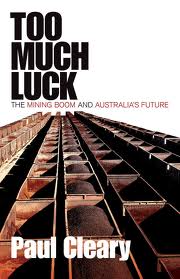
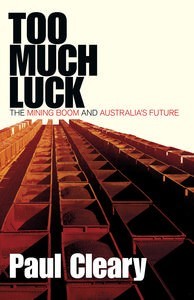
 How ironic. A party that poses as the vanguard of democratic reform denies its own membership the chance of greater democratic participation. Why?
How ironic. A party that poses as the vanguard of democratic reform denies its own membership the chance of greater democratic participation. Why? 
 This article describes an example of the serious and inhumane impact, in the form of crisis involving several individuals, and a specific suburb and hospital system, of Australian immigration policy. The government is maintaining a policy of high mass immigration contrary to the wishes of the majority of citizens. Citizens have no useful outlet and no effective parliamentary representation on this.
This article describes an example of the serious and inhumane impact, in the form of crisis involving several individuals, and a specific suburb and hospital system, of Australian immigration policy. The government is maintaining a policy of high mass immigration contrary to the wishes of the majority of citizens. Citizens have no useful outlet and no effective parliamentary representation on this.


 How many other "solutions", detention centres, unaccompanied children, unidentified entrants and money must be spent on failed policies to address the asylum seeker issue? The government is trying to please too many lobby groups - those who want the economic benefits of population growth, and those prefer to act with compassion and humanity.
How many other "solutions", detention centres, unaccompanied children, unidentified entrants and money must be spent on failed policies to address the asylum seeker issue? The government is trying to please too many lobby groups - those who want the economic benefits of population growth, and those prefer to act with compassion and humanity.

 In light of the riots in Britain, we are publishing an article based on some correspondence from the
In light of the riots in Britain, we are publishing an article based on some correspondence from the 


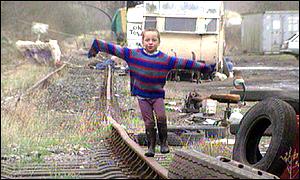 In 2001, the UK had the second highest child poverty rates in the European Union. Ten years on they have grown into angry disaffected youths
In 2001, the UK had the second highest child poverty rates in the European Union. Ten years on they have grown into angry disaffected youths

 There has been another sizable drop in employment. Greedy employers continue to put out claims that there is a terrible shortage of labour in Australia, because they know that the larger the pool of unemployed the less the market rate for labour will be. (Also, by pushing up immigration on the false plea that we are short of labour, they hope for more customers, more extreme house prices, and other changes by which the big fish benefit over the small.)
There has been another sizable drop in employment. Greedy employers continue to put out claims that there is a terrible shortage of labour in Australia, because they know that the larger the pool of unemployed the less the market rate for labour will be. (Also, by pushing up immigration on the false plea that we are short of labour, they hope for more customers, more extreme house prices, and other changes by which the big fish benefit over the small.)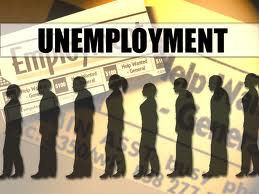
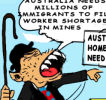 The Centre for Population and Urban Research (CPUR) has recently released a major new report on immigration and on Australia's alleged need for labour. It shows that there is no real problem with supplying labour for the Resources Boom -- even if you accept the government's assumption that we need to export our resources as fast as possible.
The Centre for Population and Urban Research (CPUR) has recently released a major new report on immigration and on Australia's alleged need for labour. It shows that there is no real problem with supplying labour for the Resources Boom -- even if you accept the government's assumption that we need to export our resources as fast as possible.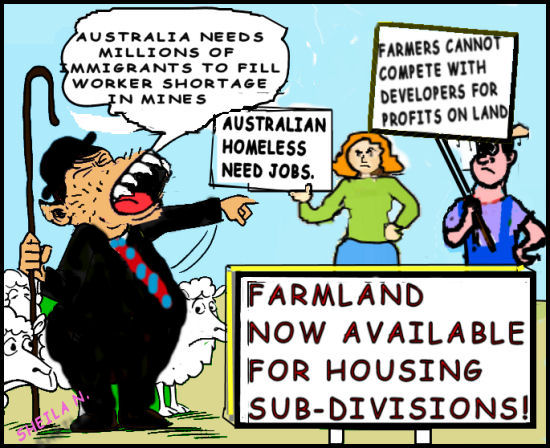
 Melbourne people can hear MP Hon. Kelvin Thomson speak at the A.G.M. of Sustainable Population Australia (Victorian branch) on July 16th at 2.00p.m. The topic will be, "The population issue in Australia - post Population Strategy." The title refers to Minister Burke's recent "Population Strategy." In this article we talk about why this meeting is so important for Victorians and Australians and discuss events leading up to it, from Barry Jones's Australia's Population Carrying Capacity Inquiry (1994), through the Bracks Population Summit (2002) and Tony Burke's "Population Strategy" (2011). We at http://candobetter.net hope that subsequent events in Victoria will maintain and support SPA Vic's promotion of a better population policy for Australia. (Inside: Link to Steve Vizard's surprisingly good program contrasting Jones Report with Burke Report.)
Melbourne people can hear MP Hon. Kelvin Thomson speak at the A.G.M. of Sustainable Population Australia (Victorian branch) on July 16th at 2.00p.m. The topic will be, "The population issue in Australia - post Population Strategy." The title refers to Minister Burke's recent "Population Strategy." In this article we talk about why this meeting is so important for Victorians and Australians and discuss events leading up to it, from Barry Jones's Australia's Population Carrying Capacity Inquiry (1994), through the Bracks Population Summit (2002) and Tony Burke's "Population Strategy" (2011). We at http://candobetter.net hope that subsequent events in Victoria will maintain and support SPA Vic's promotion of a better population policy for Australia. (Inside: Link to Steve Vizard's surprisingly good program contrasting Jones Report with Burke Report.) Australia's population is now rising by a million every three years. It used to grow by only 200,000 a year. The increase has not been driven by natural increase, refugees or family reunions. It has been driven by an increase in skilled migration from 24,000 in 1996 to over 100,000 now. (Kelvin Thomson - Member for Wills electorate, Victoria, Australia)
Australia's population is now rising by a million every three years. It used to grow by only 200,000 a year. The increase has not been driven by natural increase, refugees or family reunions. It has been driven by an increase in skilled migration from 24,000 in 1996 to over 100,000 now. (Kelvin Thomson - Member for Wills electorate, Victoria, Australia)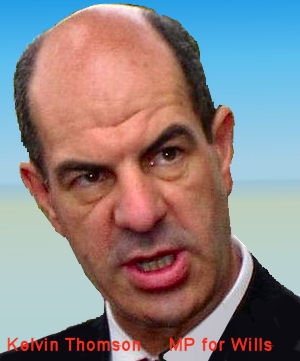 The source of this article is a Speech by Kelvin Thomson, delivered to the House of Representatives on 24 May, 2011, in response to the Government's Budget. You may find the original source here:
The source of this article is a Speech by Kelvin Thomson, delivered to the House of Representatives on 24 May, 2011, in response to the Government's Budget. You may find the original source here: 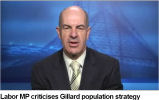

 In the TV debate of April 12, 2011, the leaders of Canada's four parties with parliamentary seats demonstrated that beneath the phony left-right dichotomies, parliament is ideologically monolithic in the most important sense. All of them believe in the necessity, desirability and possibility of continuing economic growth, and that immigration-driven population growth is its necessary concomitant and driver. But how could it be otherwise? Politicians do not effect change, they respond to it. And the environmental movement---and its political arm in the NDP and the Green Party, has done nothing to create a constituency of awareness that population growth in Canada is unsustainable, an awareness that if widely shared, would compel political parties and their leaders to address it. Most culpable is David Suzuki, who could move mountains if he would publicly say what he has said of Australia: that in relation to our resources, we are in serious population overshoot.
In the TV debate of April 12, 2011, the leaders of Canada's four parties with parliamentary seats demonstrated that beneath the phony left-right dichotomies, parliament is ideologically monolithic in the most important sense. All of them believe in the necessity, desirability and possibility of continuing economic growth, and that immigration-driven population growth is its necessary concomitant and driver. But how could it be otherwise? Politicians do not effect change, they respond to it. And the environmental movement---and its political arm in the NDP and the Green Party, has done nothing to create a constituency of awareness that population growth in Canada is unsustainable, an awareness that if widely shared, would compel political parties and their leaders to address it. Most culpable is David Suzuki, who could move mountains if he would publicly say what he has said of Australia: that in relation to our resources, we are in serious population overshoot. 


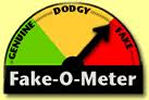 First the Fraser Institute was named Canada's top "Think Tank" and among the best of 25 Think Tanks in the world. Now Vancouver has been named the world's most livable city. At this rate, I suppose that soon it will be named the driest city on the continent. Who is making these judgments, a Queensland politician? Here's a tip. Before you rave about Vancouver, try living there on an average wage. Good luck.
First the Fraser Institute was named Canada's top "Think Tank" and among the best of 25 Think Tanks in the world. Now Vancouver has been named the world's most livable city. At this rate, I suppose that soon it will be named the driest city on the continent. Who is making these judgments, a Queensland politician? Here's a tip. Before you rave about Vancouver, try living there on an average wage. Good luck.




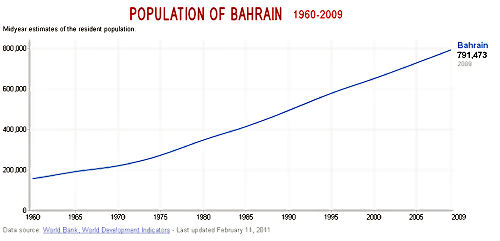

 The market for Vancouver real estate has gone global in a big way. The first wave of rich Chinese buyers came in the 80s and 90s as the impending transfer of Hong Kong to mainland rule approached, and the demolition of modest homes on the west side in favour of mega-houses transformed the city. But now China itself has spawned an even bigger reservoir of affluence that is looking for an investment outlet and finding it in Vancouver property. This will complete the process of dispossession that began three decades ago. Even higher density and higher property taxes and rents will combine to make life in this city---a city frequently held up as a model of sensible planning in Australia---tenuous and stressful at best. But stayed tuned. The property bubble will burst, and these investors and the realtors who cater to them will take a well-deserved beating.
The market for Vancouver real estate has gone global in a big way. The first wave of rich Chinese buyers came in the 80s and 90s as the impending transfer of Hong Kong to mainland rule approached, and the demolition of modest homes on the west side in favour of mega-houses transformed the city. But now China itself has spawned an even bigger reservoir of affluence that is looking for an investment outlet and finding it in Vancouver property. This will complete the process of dispossession that began three decades ago. Even higher density and higher property taxes and rents will combine to make life in this city---a city frequently held up as a model of sensible planning in Australia---tenuous and stressful at best. But stayed tuned. The property bubble will burst, and these investors and the realtors who cater to them will take a well-deserved beating.
 North American children of my older brothers' generation knew about The Shadow He was the heroic vigilante crime fighter of pulp fiction fame who made his presence felt in comic books, movies and most poignantly on radio, the centre piece of family entertainment. By the time I came of age as a boy in the late fifties, he had left the stage, but not in my imagination---- my brother Al made sure of that. He would hide in my bedroom closet as I went to sleep then awake me with a chilling rendition: Who knows what evil lurks in the hearts of men! Only The Shadow knows! He knows that the weed of crime bears bitter fruit! I'll be around every corner---in every closet----in every room, as inevitable as your guilty conscience." Then he would follow up with a sinister laugh, "Ha Ha Haw!" To this day, I have fantasized about reprising that role, only this time as a corporate crime fighter, a shadow to the Growth Lobby, and those in the environmental movement who collaborate with them.
North American children of my older brothers' generation knew about The Shadow He was the heroic vigilante crime fighter of pulp fiction fame who made his presence felt in comic books, movies and most poignantly on radio, the centre piece of family entertainment. By the time I came of age as a boy in the late fifties, he had left the stage, but not in my imagination---- my brother Al made sure of that. He would hide in my bedroom closet as I went to sleep then awake me with a chilling rendition: Who knows what evil lurks in the hearts of men! Only The Shadow knows! He knows that the weed of crime bears bitter fruit! I'll be around every corner---in every closet----in every room, as inevitable as your guilty conscience." Then he would follow up with a sinister laugh, "Ha Ha Haw!" To this day, I have fantasized about reprising that role, only this time as a corporate crime fighter, a shadow to the Growth Lobby, and those in the environmental movement who collaborate with them. 
 Unstoppable waves of migrants, overcrowding, displaced workers
Unstoppable waves of migrants, overcrowding, displaced workers
 Cornucopians can select from an ideological buffet of arguments to deny that our growing human population is a serious problem. I have identified seven of them, but they are not exclusive---some overlap and could be treated as corollaries of others. Those in population-denial typically employ a coalition of them to make their case.
Cornucopians can select from an ideological buffet of arguments to deny that our growing human population is a serious problem. I have identified seven of them, but they are not exclusive---some overlap and could be treated as corollaries of others. Those in population-denial typically employ a coalition of them to make their case.
 It has almost become commonplace now for prominent environmentalists like David Suzuki to declare that economic growth cannot continue in a finite world. Even Canadian Green Party leader Elizabeth May has been heard to quote Paul Ehrlich's old line that "growth is the ideology of the cancer cell". The problem is, however, that they do not follow this insight through to its logical conclusion. What does economic growth consist of? If population growth is a critical ingredient of economic growth, then what drives population growth? And if migration to affluent countries promotes population growth in both the nations of emigration and the recipient countries, must not any credible strategy to fight economic growth involve tightening borders and restricting this flow?
It has almost become commonplace now for prominent environmentalists like David Suzuki to declare that economic growth cannot continue in a finite world. Even Canadian Green Party leader Elizabeth May has been heard to quote Paul Ehrlich's old line that "growth is the ideology of the cancer cell". The problem is, however, that they do not follow this insight through to its logical conclusion. What does economic growth consist of? If population growth is a critical ingredient of economic growth, then what drives population growth? And if migration to affluent countries promotes population growth in both the nations of emigration and the recipient countries, must not any credible strategy to fight economic growth involve tightening borders and restricting this flow?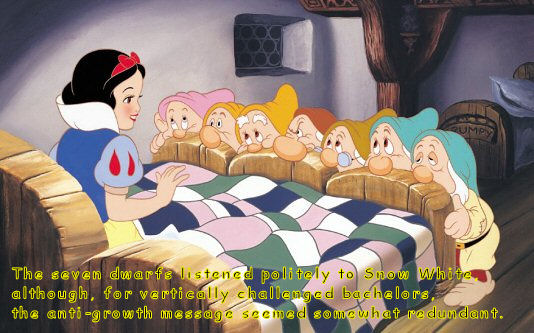 "We have come to believe that growth is the very definition of progress. You talk to any businessperson or politician and say, 'How well did you do last year?' And, within a picosecond, they will talk about growth in the GDP and the economy in profit, jobs or market share. And, anything in a finite world cannot grow forever. We live within the biosphere, that cannot grow- it's fixed." David Suzuki
"We have come to believe that growth is the very definition of progress. You talk to any businessperson or politician and say, 'How well did you do last year?' And, within a picosecond, they will talk about growth in the GDP and the economy in profit, jobs or market share. And, anything in a finite world cannot grow forever. We live within the biosphere, that cannot grow- it's fixed." David Suzuki
 Sweden has joined the United States, Britain, Spain and other nations as a target of politically motivated violence. It is no longer possible for countries such as the Netherlands and Sweden to think about their populations as homogenous groups with shared values and world views.
Sweden has joined the United States, Britain, Spain and other nations as a target of politically motivated violence. It is no longer possible for countries such as the Netherlands and Sweden to think about their populations as homogenous groups with shared values and world views. The most effective way to conquer and colonize a people is to strip them of their identity as a people, as a distinctive culture and as a sovereign nation, and to delegate the wet work to a Puppet Intelligentsia. Like the Jews (Kapos) of the Warsaw ghetto whom the Nazis appointed to manage an orderly genocide, this contemptible class of rootless cosmopolitans, with media collusion, then set to work in convincing a new generation that they are part of a greater whole, a noble international enterprise, an empire, and that allegiance to the land of their forefathers is parochial, anachronistic, selfish and ‘nativist’. No sooner did we throw off the shackles of our infantile self-image as British ‘subjects’ when now, we are intoned to become “citizens of the world”. But we are not citizens in a global participatory democracy, but the passive consumers of global capitalism. In the name of diversity were are seeing what is left of our identity tossed into a global blender, with the left is calling it international workers solidarity. Face it. What we are witnessing is an invasion, and multiculturalism is just a useful smokescreen.
The most effective way to conquer and colonize a people is to strip them of their identity as a people, as a distinctive culture and as a sovereign nation, and to delegate the wet work to a Puppet Intelligentsia. Like the Jews (Kapos) of the Warsaw ghetto whom the Nazis appointed to manage an orderly genocide, this contemptible class of rootless cosmopolitans, with media collusion, then set to work in convincing a new generation that they are part of a greater whole, a noble international enterprise, an empire, and that allegiance to the land of their forefathers is parochial, anachronistic, selfish and ‘nativist’. No sooner did we throw off the shackles of our infantile self-image as British ‘subjects’ when now, we are intoned to become “citizens of the world”. But we are not citizens in a global participatory democracy, but the passive consumers of global capitalism. In the name of diversity were are seeing what is left of our identity tossed into a global blender, with the left is calling it international workers solidarity. Face it. What we are witnessing is an invasion, and multiculturalism is just a useful smokescreen.
 In terms of numbers, Green-Left ideologues are marginal. But they punch far above their weight. Their mission is plant preconceptions about eco-Malthusians in the minds of grass roots environmentalists and those few in the media would invite our input. Left unchallenged, this bad rap becomes conventional wisdom, and doors continue to slam in our faces. And these New McCarthyists know it. It is time we gave them a dose of their own medicine. We must expose their corporate funding sources and ask the obvious questions. Whose agenda are THEY serving? Whose interest is served by open borders? Are not the "eco-socialists" and "green" Trots Wall Street's useful idiots?
In terms of numbers, Green-Left ideologues are marginal. But they punch far above their weight. Their mission is plant preconceptions about eco-Malthusians in the minds of grass roots environmentalists and those few in the media would invite our input. Left unchallenged, this bad rap becomes conventional wisdom, and doors continue to slam in our faces. And these New McCarthyists know it. It is time we gave them a dose of their own medicine. We must expose their corporate funding sources and ask the obvious questions. Whose agenda are THEY serving? Whose interest is served by open borders? Are not the "eco-socialists" and "green" Trots Wall Street's useful idiots?

Recent comments